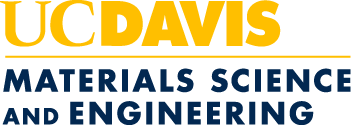
Ph.D. student Jianheng Li receives Berkeley Lab doctoral fellowship

Fourth-year Ph.D. student Jianheng Li received an ALS Doctoral Fellowship in Residence at Lawrence Berkeley National Laboratory (LBL). Li will spend the 2019-2020 academic year at LBL’s Advanced Light Source (ALS) facility working with the state-of-the-art equipment, techniques and applications in synchrotron radiation research, and will receive $20,000 towards his research
Though Li has conducted experiments in the ALS facility as a user, he is excited to work there full-time and collaborate with the facility’s scientists to design and develop a synchrotron beam line. “As a doctoral fellow, I will be able to learn and independently operate x-ray beam lines with specific configurations,” he said. “That means I will learn inner workings of the beam line and solve the kinds of problems I couldn’t as just a user.”
Li, part of Assistant Professor Roopali Kukreja’s group, studies the dynamics of phase transition in a variety of systems including ferroelectrics and glasses. During his in residence fellowship, Li will focus on understanding magnetic and electronic properties of lanthanum strontium cobalt oxide (La₁₋ₓSrₓCoO₃), where the relative ratio of La and Sr can be varied to change functional properties. With a particular composition, ferromagnetic clusters appear in an otherwise non-magnetic sample. Li compares it to a loaf of raisin bread where the raisins are ferromagnetic and the bread is the not.
As the temperature changes, these clusters evolve and their magnetic and electronic properties change, but the dynamics of this transition are not clear. Li plans to measure the sample at different time intervals to understand magnetic and electronic dynamics as function of temperature.
“While researchers already know about the static behavior of these magnetic “islands,” their dynamic behavior is still unknown, as studying it requires techniques with both spatial and temporal resolution,” he explained.
Li will use X-ray photon correlation spectroscopy, or XPCS technique, which uses a coherent X-ray synchrotron beam to characterize and study the dynamics of the magnetic sample. Li will use this beam to investigate how magnetic fluctuations at lengthscales of ~10 nm evolve as a function of time for various temperatures.
He hopes to use this experience to accelerate his research and give him valuable synchrotron experience for postdoctoral work or a career after he completes his Ph.D.
The ALS Doctoral Fellowship in Residence is offered every year by LBL to Ph.D. students who wish to gain hands-on experience in the Advanced Light Source facility. The fellowship lasts one year with the possibility of renewal. Li is the second UC Davis student to receive the fellowship; biological and agricultural engineering and chemical engineering alumnus Jennifer Nill '19 was the other.
Kukreja’s research group studies the electronic and magnetic properties of materials on the nanoscale and at ultrafast time scales when they are exposed to external stimuli like lasers. Learn more about the Kukreja group.
